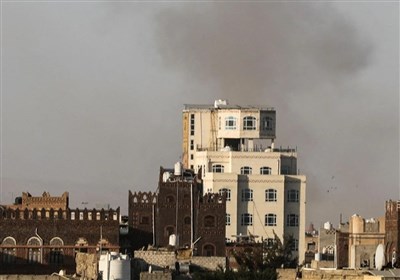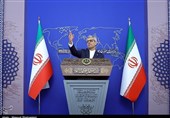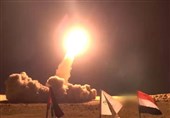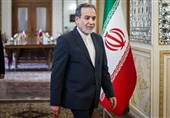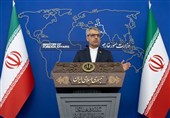Leader’s Fatwa on WMD Prohibition to Make History: Iran’s Nuclear Chief
TEHRAN (Tasnim) – Head of the Atomic Energy Organization of Iran (AEOI) Ali Akbar Salehi said Supreme Leader of the Islamic Revolution Ayatollah Seyed Ali Khamenei’s religious decree on prohibition of weapons of mass destruction will go down in history as an initiative for WMD disarmament.
Speaking at a nuclear site in the province of Qom on Monday, Salehi hailed the Leader’s historic fatwa, saying impacts of the decree will materialize further in the near future.
Ayatollah Khamenei has on many occasions stressed that the production, stockpiling and use of nuclear weapons is Haram (religiously forbidden) and the Islamic Republic considers the pursuit and possession of nuclear weapons as a grave sin.
Elsewhere in his comments, Salehi pointed to his organization’s efforts to supply raw materials for enrichment activities, including aerial surveys to find uranium deposits.
He said aerial survey has been conducted over 60 percent of the country’s territory so far to detect locations with strong possibility of existence of raw materials needed for enrichment.
Earlier in August, Salehi had announced that conclusion of nuclear talks between Iran and the Group 5+1 (Russia, China, the US, Britain, France and Germany) has opened up new vistas for Tehran to think of nuclear activities for commercial purposes.
Iran and the Group 5+1 (also known as the P5+1 or E3+3) finalized the text of a lasting nuclear accord in Vienna on July 14, after 23 months of diplomatic negotiations.
Dubbed the JCPOA, the 159-page document has subjected Iran and the six other countries to comply with a series of commitments, resulting in the termination of sanctions on Iran in exchange for certain restrictions on Tehran’s nuclear program during a defined period of time.
Back on July 15 and after conclusion of the marathon talks in Vienna, Iran’s Foreign Minister Mohammad Javad Zarif announced that the deal would open up an opportunity for Iran to enrich uranium for commercial purposes.
“According to the plans, Iran is scheduled to move toward more advanced nuclear industry and commercial (uranium) enrichment,” Zarif said at the time.


